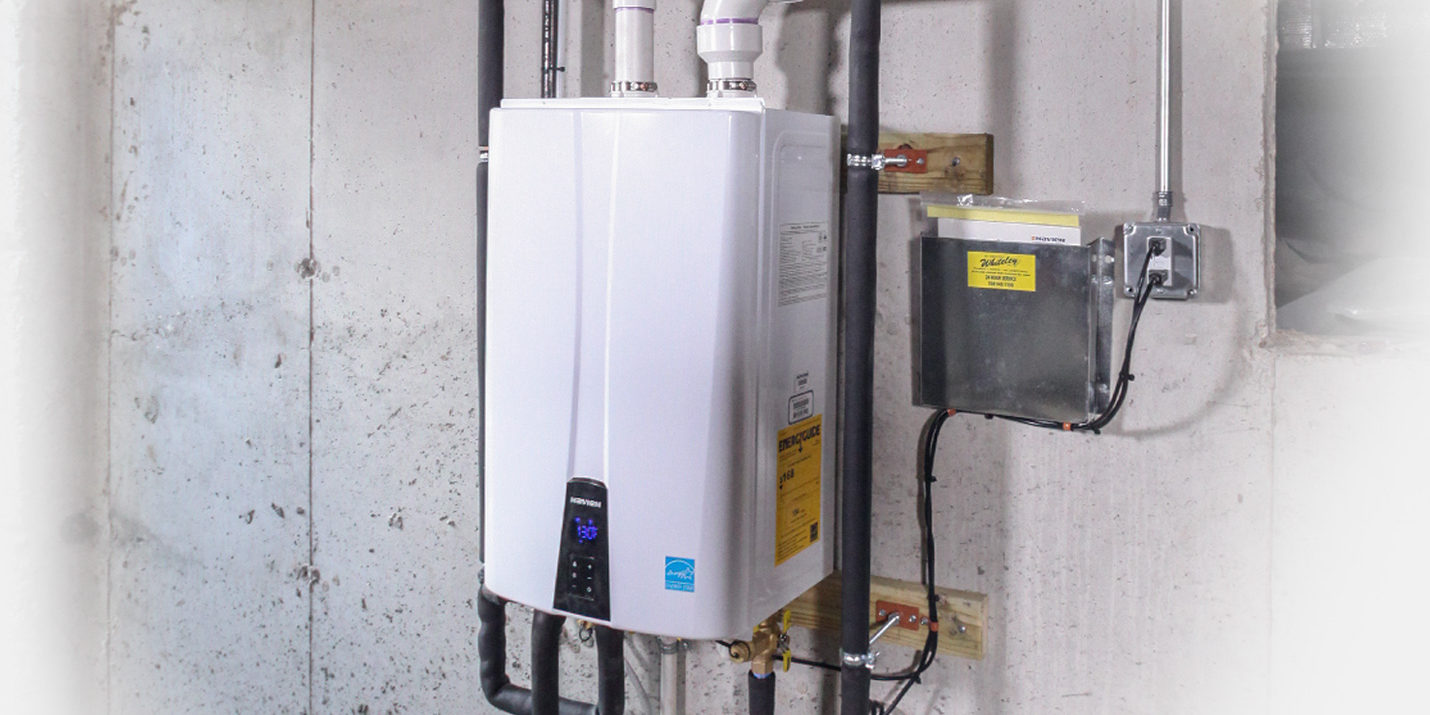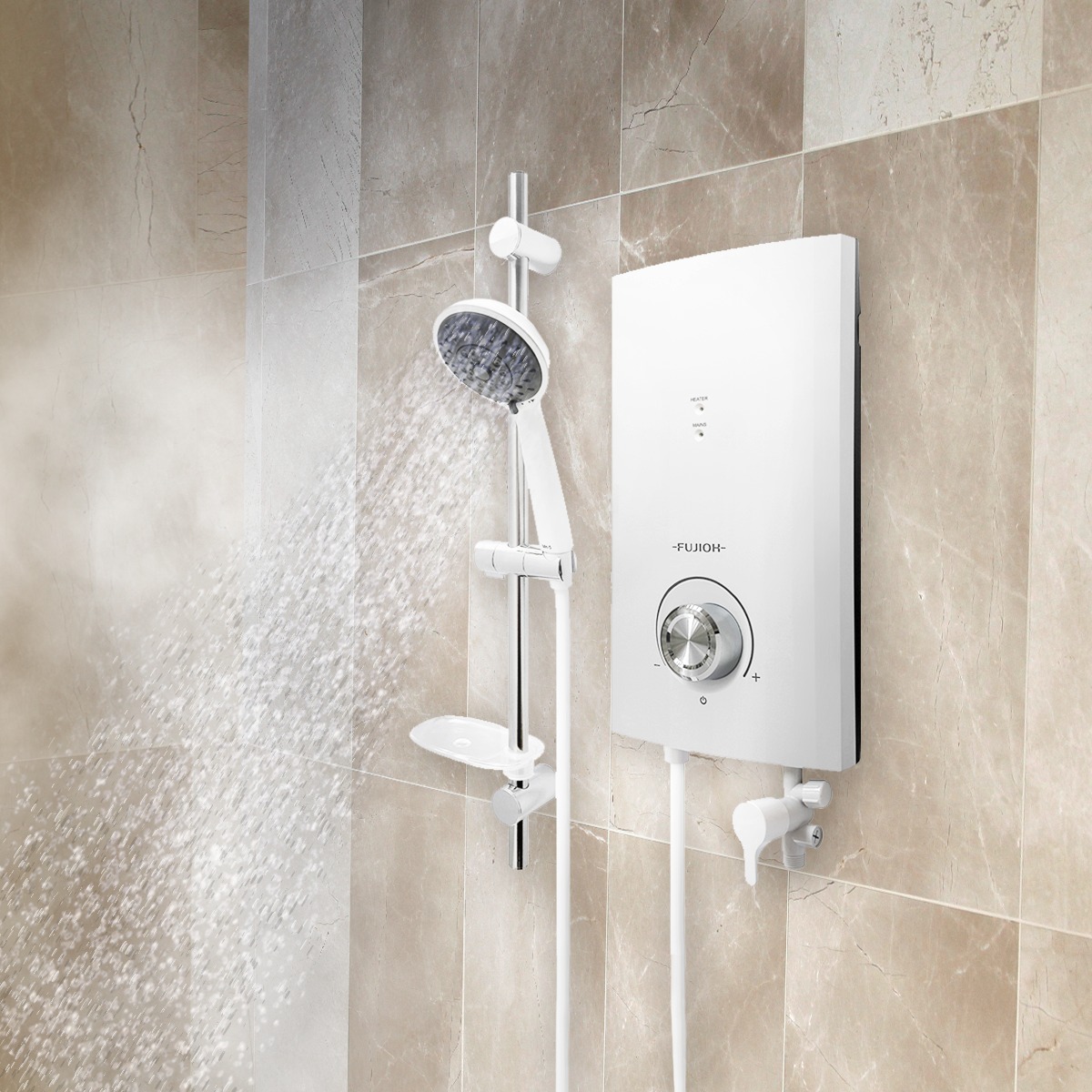Major Causes Why Tankless Water Heaters Remain Beneficial
Major Causes Why Tankless Water Heaters Remain Beneficial
Blog Article
Every person will have their unique idea with regards to 5 Benefits of Tankless Water Heaters.

In a world where convenience and performance reign supreme, it's no surprise that home owners are regularly in search of smarter ways to manage their home's energy consumption and comfort. One development that has gradually obtained appeal is the tankless hot water heater. However what exactly makes these systems stick out from the traditional tank-based models a lot of us matured with? Let's dive in and discover the benefits of tankless hot water heater, aiding you determine if it's time to make the switch in your home.
Intro
Picture this: you step into the shower after a long day, expecting a relaxing waterfall of hot water, just to be greeted by icy droplets because the last person used all of it up. Sound acquainted? Standard water heaters store a fixed amount of hot water, implying you go to the mercy of that container's supply. Tankless systems, on the other hand, warm water on demand. Say goodbye to running out mid-shower, say goodbye to fumbling with routines simply to ensure hot water is readily available.
Comprehending Tankless Hot Water Heater
What Are Tankless Water Heaters?
Tankless hot water heater, often referred to as on-demand or instantaneous water heaters, offer warm water only as it's needed. Rather than saving gallons of pre-heated water, these units kick into action the moment you switch on the tap. Water travels through a warm exchanger, warming up in real-time, suggesting you obtain a continuous flow of warm water without the need for a huge container sitting lazily by.
Just how Do They Differ from Standard Equipments?
Standard heating units hold a storage tank of warm water, making use of power to maintain that tank at a consistent temperature. Tankless devices eliminate the standing supply, cutting down on wasted energy and the large footprint of a huge cyndrical tube. Essentially, you're updating from a "stockpile" way of thinking to a "made-to-order" method.
Typical Kinds Of Tankless Devices
Tankless hot water heater generally come in two varieties: gas and electric. Gas models often tend to supply greater flow rates, suitable for larger homes, while electrical versions often offer smaller sized homes and are commonly simpler to install. Furthermore, some systems are designed for point-of-use (offering one component) while others can handle the entire home's hot water demands.
Secret Benefits of Tankless Water Heaters
Power Effectiveness and Price Cost Savings
Say goodbye to warming a giant container's well worth of water and keeping it toasty all day. Tankless heaters reduce standby energy losses, which can decrease utility costs. While the preliminary cost might be higher, the long-term cost savings commonly justify the financial investment.
3. Space-Saving Style
If your home is short on storage space, getting rid of the large tank frees up beneficial room. Tankless devices are small and can frequently be mounted on wall surfaces, stashed in edges, or set up in tight energy storage rooms without hogging the entire area.
4. Longer Lifespan
A well-kept tankless hot water heater can outlive its tank-based relative. Conventional tanks could last 10-15 years, while tankless models can keep downing along for twenty years or even more, making them a strong investment in time.
1. Unlimited Hot Water Supply
Ever before had to schedule showers so every person obtains their reasonable share of warm water? With tankless, that becomes a distant memory. As long as the heating unit's circulation ability isn't gone beyond, you can take back-to-back showers without becoming a popsicle.
5. Improved Water Quality
Saving water in a storage tank can in some cases result in sediment accumulation or a somewhat "off" taste. With tankless systems, fresh water is heated up instantly, reducing the chances of sediment build-up and potentially using cleaner-tasting water.
Factors to consider Prior To Changing
Though the advantages are compelling, it's wise to consider a few factors prior to fully dedicating.
Evaluating Your Home's Water Usage Patterns
If your home at the same time uses numerous components with high hot water need, ensure the unit's flow rate satisfies your needs. Knowing your use patterns helps you select the right dimension and type of tankless heating system.
Maintenance and Treatment Tips
Tankless systems are relatively reduced upkeep, but they aren't set-it-and-forget-it home appliances.
Regular Cleaning and Descaling
Difficult water minerals can accumulate in the heat exchanger, influencing performance. Regular descaling (typically recommended each year) keeps the unit performing at peak performance.
Yearly Professional Evaluations
A yearly checkup from a professional makes certain minor problems are captured early. They'll examine the device's efficiency, search for leaks, and help maintain optimum performance.
First Financial Investment Expenses
Tankless heating units normally include a higher upfront cost. In between the system itself and potential installment alterations, the preliminary cost could give you sticker shock. However remember to watch it as a lasting investment.
Installation Needs
Depending upon your home's framework, you might require additional electric ability or gas line upgrades. Ensure you comprehend the installment requirements and seek advice from a professional to prevent shocks.
Ensuring Correct Air Flow
For gas versions, correct ventilation is vital to safely remove exhaust gases. Make certain venting systems are clean and properly set up to stop any kind of potential security dangers.
Contrasting Different Brands and Versions
Not all tankless hot water heater are produced equivalent.
Investigating Reputable Producers
Search for respectable brands with a history of generating top quality units. A dependable maker typically offers better consumer assistance and longer service warranties.
Installment: DIY or Professional?
While some homeowners relish taking on jobs themselves, tankless setup might not be the best time to burst out the tool kit.
Benefits and drawbacks of DIY Setup
A do it yourself install can save cash, but it includes risks. Wrong installment can bring about inadequacy or security concerns. If you're handy and have experience, it may be practical-- but wage care.
Checking Out Reviews and Individual Comments
Customer reviews and responses from next-door neighbors or close friends who have gone tankless can provide useful insights. In some cases, real-life experiences can be extra informing than advertising and marketing brochures.
When to Call a Professional Plumber
For many, calling a pro makes sure every little thing's done appropriately. A professional plumbing technician comprehends neighborhood codes, sizing needs, and venting parameters, reducing the risk of mishaps.
Making best use of Performance
You have actually invested in a tankless device-- currently maximize its efficiency.
Ideal Temperature Level Settings
Many people establish their systems in between 120-140 F. Adjusting the temperature can improve comfort and financial savings. Experiment to discover a pleasant area that does not squander power.
Coupling With Low-Flow Fixtures
Intend to extend your system's abilities? Consider mounting low-flow showerheads and taps. They lower water usage, permitting your tankless system to deliver a constant stream of warm water without stressing.
Environmental Effect
Tankless hot water heater straighten with greener living goals.
Lowered Carbon Footprint
By utilizing much less energy and just home heating water as required, tankless systems can reduce your home's carbon impact, minimizing your ecological effect.
Conserving Natural Resources
Much less power usage and less lost warm water convert into fewer natural resources being utilized, an environmental win-win.
Who Profits Most from Tankless Heating systems?
The elegance of tankless heaters is that they can match a range of families.
Big Families vs. Single Residents
Big households might enjoy the limitless hot water supply, while single owners appreciate the power financial savings from not heating up an entire storage tank for simply someone's morning shower.
Home Owners with Limited Area
If your home is short on square video, shedding the cumbersome tank frees up room for various other essentials-- or possibly just extra elbow room.
Eco-Conscious Consumers
Going tankless aligns with eco-friendly values, guaranteeing you're not throwing away energy or resources.
Future Fads in Tankless Water Heaters
The world of home devices is ever-evolving, and tankless hot water heater are no exception.
Innovations in Modern technology
R&D is regularly boosting warm exchangers, making units extra efficient and long lasting. Future models may be even quieter, more small, and better fit for differing climates.
Smart Home Assimilation
Picture adjusting your water heater's temperature through an app or receiving maintenance notifies on your phone. As smart home technology breakthroughs, we'll see even more connectivity and convenience.
Verdict
Selecting a tankless hot water heater is greater than simply updating your home's warm water system; it's purchasing lasting convenience, power performance, and a greener way of living. By considering your family's water usage, being mindful of installation needs, and committing to routine maintenance, you can appreciate a constant stream of hot water without the baggage of a bulky tank. As modern technology develops, you can eagerly anticipate also smarter, much more efficient tankless solutions that not just make your life much easier yet likewise benefit the earth.
Why You Should Consider a Tankless Water Heater for Your Home
Energy Efficiency and Cost Savings
Tankless water heaters, also known as on-demand water heaters, heat water only when needed. This means they don't waste energy keeping a tank of water hot constantly. This efficiency translates into substantial cost savings on your monthly energy bills.
Endless Hot Water Supply
One of the significant advantages of tankless water heaters is their ability to provide a continuous supply of hot water. Traditional tank water heaters have a limited capacity and can run out of hot water, especially during peak usage times. In contrast, tankless water heaters can provide an endless stream of hot water, making them ideal for larger families or homes with high water usage.
Space-Saving Design
Tankless water heaters are compact and take up significantly less space compared to traditional tank heaters. They can be installed on walls, under cabinets, or even outside, freeing up valuable space in your home. This makes tankless water heaters a great option for smaller homes or properties with limited space for a traditional water heater.
Longer Lifespan and Lower Maintenance
Tankless water heaters typically have a longer lifespan compared to traditional tank heaters. They can last up to 20 years or more with proper maintenance. Additionally, tankless systems are designed with replaceable parts, which can extend their lifespan further and reduce long-term maintenance costs.
Environmentally Friendly
Reducing energy consumption not only saves you money but also benefits the environment. Tankless water heaters contribute to a smaller carbon footprint by using less energy to heat water. Their energy efficiency and ability to minimize standby heat loss make them an eco-friendly choice for environmentally conscious homeowners.
Customized Temperature Control
Tankless water heaters offer precise temperature control, allowing you to set the desired temperature to meet your specific needs. This level of customization ensures you always have water at the perfect temperature for your comfort and usage requirements.
https://beantownservices.com/blog/consider-tankless-water-heater-for-your-home

I ran across that entry about Six Benefits of a Tankless Hot Water Heater when surfing the web. If you enjoyed reading our blog posting kindly be sure to pass it around. Many thanks for your time spent reading it.
Schedule An Appointment Report this page